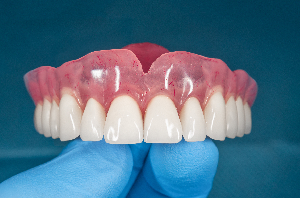
Jaclyn A. Smith, Michael M. Kitt, Peter Butera, Steven A. Smith, Yuping Li, Zhi Jin Xu, Kimberley Holt, Shilpi Sen, Mandel R. Sher, Anthony P. Ford
European Respiratory Journal 2020 55: 1901615; DOI: 10.1183/13993003.01615-2019
Abstract
Background and objectives Gefapixant has previously demonstrated efficacy in the treatment of refractory chronic cough at a high daily dose. The current investigations explore efficacy and tolerability of gefapixant, a P2X3 receptor antagonist, for the treatment of chronic cough using a dose-escalation approach.
Materials and methods Two randomised, double-blind, placebo-controlled, crossover, dose-escalation studies recruited participants with refractory chronic cough. Patients were assigned to receive ascending doses of gefapixant (study 1: 50–200 mg, study 2: 7.5–50 mg) or placebo for 16 days, then crossed-over after washout. The primary end-point was awake cough frequency assessed using a 24-h ambulatory cough monitor at baseline and on day 4 of each dose. Patient-reported outcomes included a cough severity visual analogue scale and the cough severity diary.
Results In clinical studies, gefapixant doses ≥30 mg produced maximal improvements in cough frequency compared with placebo (p<0.05); reported cough severity measures improved at similar doses. Taste disturbance exhibited a different relationship with dose, apparently maximal at doses ≥150 mg.
Conclusions P2X3 antagonism with gefapixant demonstrates anti-tussive efficacy and improved tolerability at lower doses than previously investigated. Studies of longer duration are warranted.
Patients with refractory chronic cough had significant reductions in coughing with lower doses of gefapixant than previously evaluated demonstrating efficacy and improved tolerability http://bit.ly/2Rg3q2t
Footnotes
-
This article has supplementary material available from erj.ersjournals.com
-
This study is registered at www.clinicaltrials.gov with identifier number NCT02349425 and on the EU Clinical Trials Register (EudraCT Number: 2015-000474-35) Data availability: the data sharing policy of Merck Sharp and Dohme Corp. (a subsidiary of Merck and Co., Inc., Kenilworth, NJ, USA), including restrictions, is available at http://engagezone.msd.com/ds_documentation.php. Requests for access to the clinical study data can be submitted through the EngageZone site or via email to dataaccess@merck.com.
-
Author contributions: J.A. Smith: conception, design or planning of the study, analysis of data, interpretation of results, drafting of the manuscript, critical review and revision of the manuscript. M.M. Kitt: conception, design or planning of the study, analysis of data, interpretation of results, critical review and revision of the manuscript. P. Butera: conception, design or planning of the study, acquisition of data, critical review and revision of the manuscript. S.A. Smith: analysis of data, critical review and revision of the manuscript. Y. Li: analysis of data, interpretation of results, critical review and revision of the manuscript. Z.J. Xu: analysis of data, critical review and revision of the manuscript. K. Holt: analysis of data, critical review and revision of the manuscript. S. Sen: analysis of data, drafting of the manuscript. M.R. Sher: acquisition of data, interpretation of results, critical review and revision of the manuscript. A.P. Ford: conception, design or planning of the study, interpretation of results, drafting of the manuscript, critical review and revision of the manuscript.
-
Conflict of interest: J.A. Smith reports research grants and personal fees for consultancy and advisory board work from Merck Inc., during the conduct of the study; research grants and personal fees for consultancy and advisory board work from GlaxoSmithKline, research grants and personal fees for consultancy from NeRRe Pharmaceuticals, Menlo, Bayer and Axalbion, personal fees for consultancy from Boehringer Ingleheim, Genentech, Neomed, Chiesi, Bellus and AstraZeneca, non-financial support (equipment provision) from Vitalograph, research grants from Afferent, outside the submitted work; in addition, has a patent “A method for generating output data” licensed.
-
Conflict of interest: M.M. Kitt was an employee of Merck/Afferent, during the conduct of the study.
-
Conflict of interest: P. Butera was an employee of Afferent Pharmaceuticals, Inc., during the conduct of the study.
-
Conflict of interest: S.A. Smith reports personal fees for consultancy from Afferent Pharmaceuticals, during the conduct of the study.
-
Conflict of interest: Y. Li reports personal fees for statistical work from Afferent/Merck and Co., Inc, during the conduct of the study.
-
Conflict of interest: Z.J Xu has nothing to disclose.
-
Conflict of interest: K. Holt has nothing to disclose.
-
Conflict of interest: S. Sen has nothing to disclose.
-
Conflict of interest: M.R. Sher reports personal fees from Afferent and Merck, during the conduct of the study; and is consultant to Bellus, Bayer, NeRRe with clinical studies with Menlo and NeRRe.
-
Conflict of interest: A.P. Ford was an employee of Merck/Afferent, during the conduct of the study.
-
Support statement: This study was supported by funding from Afferent Pharmaceuticals Inc., which was acquired by Merck Sharp and Dohme Corp., a subsidiary of Merck and Co., Inc., Kenilworth, NJ, USA. J.A. Smith is funded by the Manchester Biomedical Research Centre, a Wellcome Investigator award and is an NIHR Senior Investigator. Funding information for this article has been deposited with the Crossref Funder Registry.
- Received August 13, 2019.
- Accepted December 19, 2019.
- Copyright ©ERS 2020














